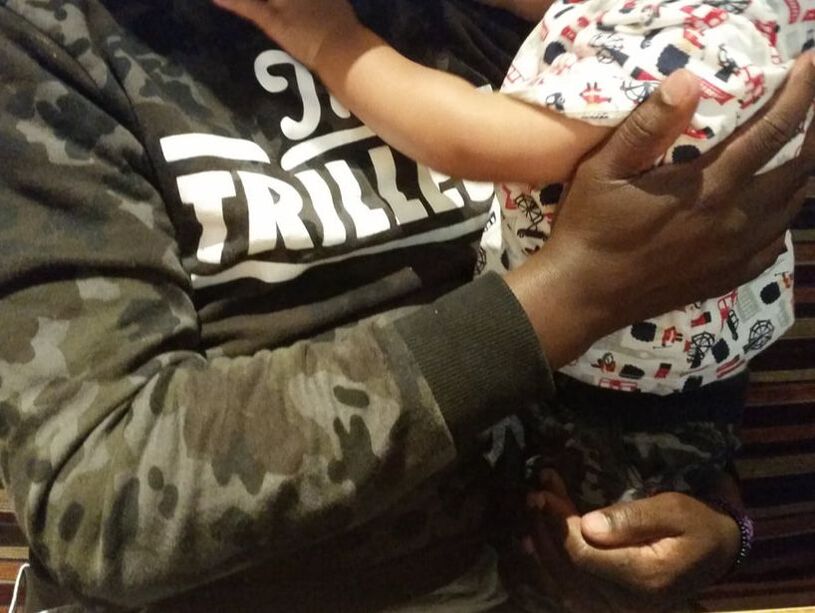|
|
|
Interviewer: ‘What do you think it means to be British?’
Miriam: ‘It is a passport. To be British now, I’m sorry to say this, but it is a passport. That is it. That is what being British means to me… I have lost faith in the country which I used to call home. I have lost faith, I have lost trust. Every single bit of pride that I had to be calling myself a British citizen has almost gone out of the window. They have basically sucked every single bit of love for the UK out of me.’ Miriam’s story Miriam’s husband had been in the UK from his teens but was recently forcibly removed from the country, after a traumatic period incarcerated in immigration detention. The authorities have advised Miriam that she should choose between staying in the UK alone or leave to be with him. She’s choosing the latter: ‘I just said stuff it, if England don’t want me to live here, I will live in any country in the world with him, and that is it.’
I interviewed Miriam in her almost empty flat, days before she left the UK. We talked amongst boxes as she packed her few remaining possessions. Miriam, a white British-born citizen, described the UK as ‘the country that I did love so much’. But her identity, national pride, civic relationship and understandings of citizenship had been dramatically reconfigured as a result of the authorities’ treatment of her foreign husband and the indifference shown to her relationship choices and citizenship rights.
Mixed-immigration status families My Identities article, ‘My passport is just my way out of here’. Mixed-immigration status families, immigration enforcement and the citizenship implications', examines the impact of immigration enforcement on mixed-immigration status families in the UK. It draws on interviews conducted in 2015–2016 with the British female partners of ‘deportable’ migrant men. The interviews show that the families of precarious migrants are also harmed by immigration policies, even if they are not themselves subject to immigration controls. They lose money and jobs, develop mental and physical health problems, and feel powerless and unable to envisage a future. Children experience damage to their wellbeing, behaviour and school attainment. Citizens describe this harm as extreme and state-sponsored, experiencing it as betrayal and rejection. ‘It is like your heart has been ripped out of your chest and thrown on the floor and stamped on by the British Government’. Citizenship and belonging Their partners’ (often lengthy, expensive and antagonistic) immigration battles also undermine citizens’ own sense of security and belonging in the UK. They feel unimportant to, and overlooked by, their government. Most of the women spoke of high levels of state intrusion, as well as being routinely disbelieved, judged and sometimes humiliated by immigration officials. People’s feelings of rights and security are especially shaken by being advised to leave the country. The effect is an undermining of people’s trust in the state and feelings of estrangement from their citizenship. Interviewees spoke of being unable to ‘practice my citizenship’ and no longer ‘proud’ of being British. ‘I’ve lost all faith in my government, how they treat us. How can my government do this to me?’ Hierarchies of citizenship These women’s experiences illustrate how immigration controls not only discipline migrants, but also the citizens close to them. And, as the Identities article argues, it does so in ways that expose the internal hierarchies and conditionalities of citizenship. Equality may be central to the theory of citizenship, but in practice belonging and membership are contested and ambiguous. It remains the case that Britons’ ability to exercise their citizenship rights, such as marry and live with the person of their choice, is gendered, classed and racialised. As Miriam asks, ‘Why is my government doing this to me? Because I’m poor?’ Blog post by Melanie Griffiths, University of Birmingham, UK
Read the full article: Griffiths, Melanie. My passport is just my way out of here’. Mixed-immigration status families, immigration enforcement and the citizenship implications. Identities: Global Studies in Culture and Power. DOI: 10.1080/1070289X.2019.1625568
0 Comments
Your comment will be posted after it is approved.
Leave a Reply. |
|
Explore Identities at tandfonline.com/GIDE |
|
The views and opinions expressed on The Identities Blog are solely those of the original blog post authors, and not of the journal, Taylor & Francis Group or the University of Glasgow.

